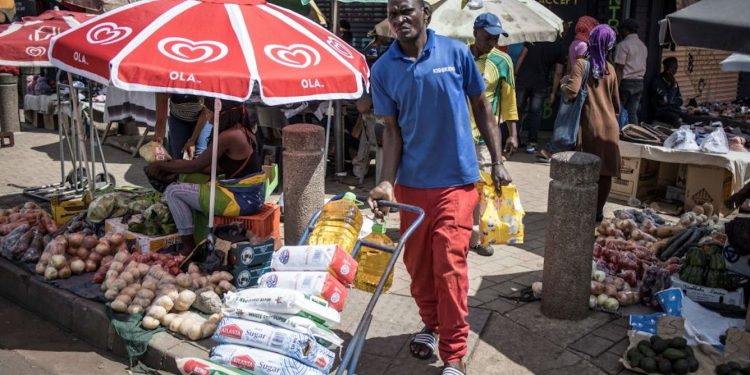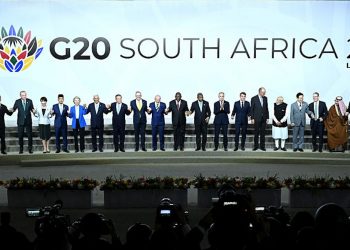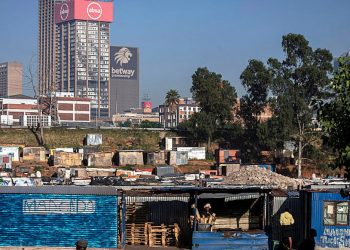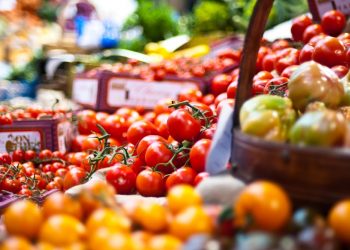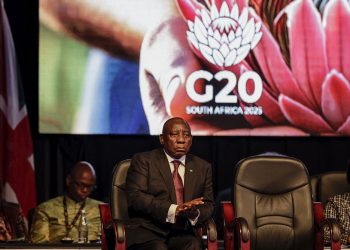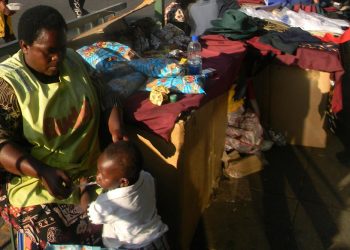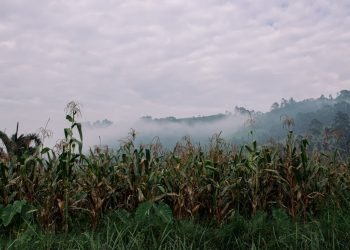About 281 million people globally have migrated from their country of origin to another country. This movement can be temporary or permanent and can occur for various reasons, including economic opportunities, family reunification and education. Then there are also millions who are escaping conflict and seeking refuge in another country.
Countries at different stages of development also experience large volumes of internal migration. Migration within a country can be temporary or permanent too, and reflect economic reasons or insecurity.
Both types of migrants sometimes experience food insecurity: the physical and financial inability to access nutritious, safe and sufficient food to fulfil a person’s dietary requirements.
There are an estimated 2.89 million documented foreign migrants in South Africa, accounting for about 5% of the country’s population. Most immigrants in South Africa come from the Southern African Development Community countries. South Africa also experiences a high annual internal migration rate. About 850,0000 people temporarily and permanently relocate from rural to urban areas.
Gauteng, the province which contributes more than a third of South Africa’s economic output, attracts a disproportionate share of internal and international migration.
As social scientists who have been studying migration and food security, we conducted research to explore the food security status of migrant households (international and internal) and native Gauteng households, and to understand their differences, if any.
The study used data from the 2020/21 Quality of Life survey. This is one of the largest social surveys in South Africa, and respondents include both internal and international migrants. It is conducted every two years by the Gauteng City Region Observatory. Quantitative research methods and statistical analysis were then applied to identify patterns and relationships between food insecurity and migration variables.
Food insecurity remains a pressing concern in South Africa’s major cities, particularly among migrant populations. Not all migrants experience food insecurity the same way, however. Internal and international migrants differ not only from native Gauteng residents but also from one another. There are different factors influencing their vulnerability.
The differences
One differentiating factor between the internal and foreign migrants is government social support services. They seem to play a key role in determining the well-being of internal migrants. International migrants don’t qualify for such services. But they sometimes fared better than internal migrants or natives, likely due to age, education, or resourcefulness (social support networks).
Internal migrants experienced their own set of challenges. For example, poor health service provision and lack of medical aid were strong predictors of food insecurity. This suggests that addressing food access requires improvements in health services, insurance, and broader social infrastructure.
Improved access to healthcare reduces the financial burden on households dealing with medical expenses, so they can spend more on food. Access to maternal and child health services enhances nutritional knowledge and practices. That in turn improves the way households use food. Health insurance and unemployment insurance protect households from income shocks that could otherwise lead to food insecurity.
A stronger social infrastructure improves food access by enhancing education, healthcare, and social protection systems. Education boosts income and nutritional knowledge. Preventive healthcare reduces illness and medical expenses, freeing up resources for food. Social protection measures help households withstand financial shocks, ensuring consistent access to food.
Of course all this support has a cost that needs to be funded from the public purse, but its benefits may well outweigh the cost.
Gender disparities
Immigrants contribute significantly to South Africa’s economy. Migration enhances labour market flexibility, promotes economic dynamism, and supports livelihoods in both urban and rural areas, making it essential for inclusive economic growth.
Internal migrants provide labour in sectors such as mining, construction and services, while also supporting rural households through remittances. They help stimulate urban informal economies.
International migrants bring valuable skills and resilience to various sectors, including agriculture, healthcare, manufacturing and construction. They contribute local income taxes. Some operate small and large formal businesses, which adds to job creation.
However, employment data reveals a pronounced gender disparity among international migrants and internal migrants.
In all population groups (native residents, internal migrants and international migrants), men are more likely to be employed than women. Among international migrants, over 1 million men were employed compared to 400,000 women. More women (281,553) than men (88,598) were classified as economically inactive – not available for work.
The primary reason for internal migration among both men and women was the search for paid employment. For men, the second most common reason was job transfers or accepting new employment.
In contrast, female migrants cited moving to live with or be closer to a spouse, family, or friends, often due to marriage, as their main motivation.
Way forward
Our study highlights the determinants of food insecurity among migrant populations. It also challenges harmful stereotypes and invites more inclusive thinking about social support and job creation.
The study’s findings can help inform the public about who needs more support and why. It shows that food aid and government support systems aren’t working as intended.
The main conclusions we reached from the study were that:
-
Rural health infrastructure is in dire need of public support.
-
Increased inequities in healthcare access are unjustified.
-
The medical and health bills of foreign citizens can be shared between home and host countries to reduce the strain on the host’s infrastructure through a combination of policy reforms, bilateral agreements and global cooperation mechanisms. Key to this is an inter-government billing system where host countries track migrants’ healthcare use and send bills to their home country governments or insurers.
-
It is desirable for migrants to hold valid health insurance as a condition of entry or residency.
-
Policies to promote agriculture and rural areas, particularly developing new rural housing schemes, appear to be a promising way to abate food insecurity.
-
Revitalising special economic zones, the designated areas offering incentives to attract investment, boost trade and create jobs, can help limit the concentration of migrants in Gauteng.
The authors do not work for, consult, own shares in or receive funding from any company or organisation that would benefit from this article, and have disclosed no relevant affiliations beyond their academic appointment.

